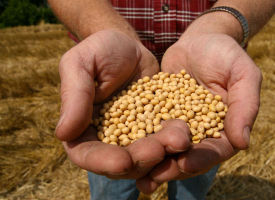Forbes made Monsanto the company of the year last year in The Planet Versus Monsanto. I know because I wrote the article. Since then everything that could have gone wrong for the genetically engineered seed company….has gone wrong. Super-weeds that are resistant to its RoundUp weed killer are emerging, even as weed killer sales are being hit by cheap Chinese generics. An expensive new bioengineered corn seed with eight new genes does not look impressive in its first harvest. And the Justice Department is invesigating over antitrust issues. All this has led to massive share declines. Other publications are making fun of our cover story.Maybe Forbes should improve its “invesigating” [sic] skills.
-jsq


